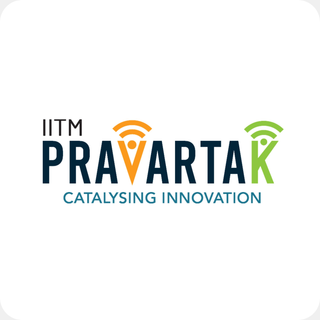The first day of kindergarten is a monumental step for children and parents alike. For years, parents have been their child's primary educators, guiding them through crucial physical, emotional, and social development. As children enter formal schooling, a key question arises: What is the right level of parental involvement?
The goal is to find a "sweet spot" that allows a child to thrive independently while receiving essential support. This balance is vital for their holistic development and future success, especially when considering the unique cultural values and educational expectations in India.
The Evolving Role of the "First Teacher"
Parents are a child's first and most influential teachers. From birth to age five, children learn to navigate the world under parental guidance. However, kindergarten marks a shift: parents evolve from primary instructors to facilitators and partners with the school. Their role adapts to support the child's growing autonomy within the new educational environment.
The Power of Presence: Why Parental Involvement Truly Matters
Active parental involvement in early school years is a strong predictor of academic success. Research shows that engaged parents lead to higher academic achievement, improved behaviour, and increased motivation. Even minimal involvement positively impacts a child's growth, correlating with better grades in reading and math.
Beyond academics, parental engagement fosters better behaviour, motivation, emotional adjustment, self-confidence, and social competence. Involved children are less prone to truancy or disruptive behaviours. This partnership between home and school creates a supportive learning environment, improving communication and keeping parents informed. It can also enhance school quality and teacher morale.
The Balancing Act: Avoiding the Extremes
While well-intentioned, both excessive and insufficient parental involvement can hinder a child's development.
The "Too Much" Trap: Over-Parenting
Excessive involvement, or "helicopter parenting," can prevent children from developing crucial life skills. Studies link over-parenting to reduced resilience, increased anxiety and depression, a sense of entitlement, and underdeveloped problem-solving skills. Common behaviours include micromanaging schedules, solving all problems, constantly hovering to prevent failure, and making all decisions for the child. A good rule is: "Never do something for their child that the child is capable of doing themselves".
The "Too Little" Gap: Under-Involvement
Conversely, uninvolved parenting is characterised by a lack of responsiveness and minimal demands. This can stem from parental stress or personal challenges. Children with minimal involvement often show deficits in cognitive abilities, emotional regulation, and social skills. They may struggle with relationships, exhibit behavioural issues, experience anxiety, and face a higher risk of substance abuse. Uninvolved parents often show emotional distance, limit interaction, and skip school events.
Both extremes lead to similar negative outcomes, like reduced resilience and underdeveloped life skills. Effective parenting lies in a "Goldilocks Zone" – providing enough support without stifling growth, allowing children to learn through age-appropriate challenges and self-discovery.
Nurturing Independence: Empowering a Child to Soar
Fostering independence means creating a secure environment where children can explore, make choices, and learn from experiences.
Practical Strategies at Home
- Set predictable routines: Consistency provides safety, empowering children to take on responsibilities.
- Offer age-appropriate choices: Empower children and build decision-making skills.
- Involve children in chores: Develop responsibility, self-reliance, and a sense of contribution.
- Allow them to solve small problems: Resist immediate intervention; let them "power through frustration" to build resilience.
- Encourage creative and free play: Essential for creativity, problem-solving, and autonomy.
The Art of Positive Reinforcement (P-R-I-D-E)
This framework provides effective verbal feedback to build self-esteem and encourage positive behaviours:
- Praise: Acknowledge appropriate behaviour specifically.
- Reflect: Repeat appropriate speech to show active listening.
- Imitate: Mimic appropriate behaviour to provide positive attention.
- Describe: Narrate what a child is doing to reinforce positive play.
- Be Enthusiastic: Use a playful tone and smile to create warmer interactions.
Nurturing independence isn't about stepping back entirely, but providing a stable, loving foundation through structure and routines. This security gives children the confidence to explore, take age-appropriate risks, and develop problem-solving abilities.
Meaningful Engagement: Connecting with Their School Journey
A strong home-school partnership relies on open, respectful, and consistent communication.
Building Trust and Two-Way Communication
- Respectful dialogue with educators: Families need to feel respected and confident that educators are responsive to their concerns.
- Utilise various communication channels: Use apps, secure webpages, newsletters, emails, and phone calls. Messages should be simple, relatable, and translated for multilingual families.
- Proactive positive updates: Schools should share positive news and display photos of families and students to foster community.
Active Participation
- Attend school events and parent-teacher conferences: Discuss progress, strengths, and areas for improvement.
- Volunteer (if feasible): Familiarise yourself with the school, interact with staff, and connect with other parents.
- Extend learning at home: Request suggestions for at-home activities and utilise resources from school.
The "Five Rs" of Family Engagement
This framework helps educators build trust and promote engagement :
- Respect: Honour families, their values, culture, and experiences.
- Responsiveness & Reassurance: Show care for individual needs and respond to concerns promptly.
- Relationship: Build partnerships and invite families into the classroom community.
- Reciprocity: Involve families in dialogue and decision-making, considering culture and language.
- Reflection: Continually assess understanding of each child and family to enhance engagement.
Effective home-school communication must be two-way, respectful, culturally sensitive, and proactive. It's about genuine co-creation and shared decision-making, ensuring all families can participate meaningfully.
The Indian Context: Unique Perspectives on Parental Involvement
Early Childhood Education (ECE) in India is crucial for children's growth and long-term learning. Parental engagement is especially vital during ages 3-6, particularly with the rise of digital learning. In India, parental involvement is key for academic achievement, reduced absenteeism, and increased parental confidence.
Addressing Common Barriers
Meaningful parental engagement in India, especially for marginalised families, faces distinct barriers :
- Lack of resources and know-how: Parents may lack educational resources or teaching skills.
- Time constraints: Demanding work schedules limit time for education.
- Digital divide: Disparities in access to devices and digital literacy, especially in low-resource schools.
- Parents' own marginalization: Socio-economic challenges can impede involvement.
Strategies for Success in India
Local school communities must recognise "parents as partners" :
- Explain ECE importance: Clearly articulate the long-term impact of early learning.
- Facilitate adult learning/literacy classes: Empower parents to become "co-educators".
- Community support and well-being checks: Address socio-emotional challenges and ensure access to basic needs.
- Training for online learning: Provide practical training on digital tools and vernacular learning materials.
The research highlights socio-economic barriers in India, suggesting that a parent's ability to engage is often tied to their own stability. Schools must adopt a holistic, community-centric approach, supporting family well-being as a prerequisite for educational partnership. The digital divide is both a challenge and an opportunity, requiring schools to bridge gaps while maintaining diverse communication channels.
What Indian Parents Expect from Schools
Indian parents have clear expectations for schools :
- Academic Excellence: High-quality education with a strong curriculum and skilled teachers.
- Safe and Secure Environment: A physically and emotionally safe space, free from bullying.
- Clear Communication: Regular, transparent updates on academic and behavioural progress.
- Effective Discipline: Clear, consistent, and fair disciplinary measures.
- Holistic Development: Support for physical, social, emotional, and mental growth.
Your Child's Bright Beginning: A Balanced Path Forward
As your child begins kindergarten, recognise that your role is evolving. The goal is to find that "just right" level of involvement that fosters resilience, confidence, and capability. It's not about doing everything for them, nor withdrawing completely. Every child and family journey is unique. Trust your instincts, apply these principles thoughtfully, and celebrate every small victory. Finding this balance is an ongoing process, but your mindful presence will lay a strong foundation for their bright future.
Discover More with Fundaspring!
As your child embarks on this exciting journey, Fundaspring is here to support every step. Explore our curated collection of Summer Camps designed to spark curiosity and foster new skills, ensuring a summer full of growth and fun. Looking ahead? Discover top-rated Preschools & Daycares that provide nurturing environments for early learning and development. Visit Fundaspring today to find the perfect fit for your child's bright future!
https://fundaspring.com/collections/summer-camps-for-kids https://fundaspring.com/collections/preschools-daycare-early-education
Sources
- https://parentpowered.com/blog/kindergarten-readiness/family-engagement-in-early-childhood-education/
- https://www.naeyc.org/resources/pubs/tyc/winter2022/fiver-rs-family
- https://digitalcommons.csumb.edu/cgi/viewcontent.cgi?article=3006&context=caps_thes_all
- https://www.purelifeadventure.com/blog/5-examples-of-overparenting-why-its-hurting-your-teen/
- https://www.internationalschoolparent.com/articles/helicopter-parenting-the-consequences/
- https://www.verywellmind.com/what-is-uninvolved-parenting-2794958
- https://itslearning.com/blog/impact-parental-involvement-childrens-academic-lives
- https://childmind.org/article/how-to-build-independence-in-preschoolers/
- https://educationendowmentfoundation.org.uk/education-evidence/teaching-learning-toolkit/parental-engagement
- https://akanksha.org/resources/blogs/parental-engagement-in-ece
- https://childrenincorporated.org/involving-parents-in-education-in-india/
- https://www.igauge.in/blogs/top-9-things-the-parents-expect-from-school
- https://globalindianschool.org/pune/blog-details/how-kindergarten-schooling-enhances-your-childs-skills
- https://www.entab.in/effective-strategies-parent-teacher-communication.html
- https://www.dreamtimelearningschool.com/why-more-indian-parents-are-choosing-online-homeschooling-in-2025/
- https://www.verywellmind.com/what-is-uninvolved-parenting-2794958
- https://www.internationalschoolparent.com/articles/helicopter-parenting-the-consequences/
- https://www.verywellmind.com/what-is-uninvolved-parenting-2794958

















